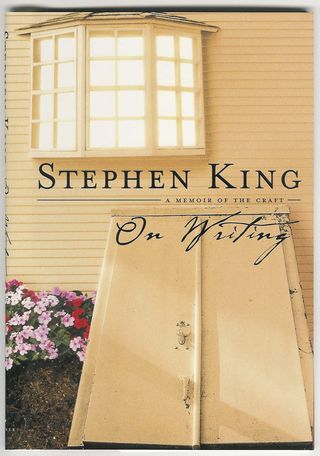Writing Inspiration: “On Writing” by Stephen King
Writing Inspiration: “On Writing” by Stephen King
Whether or not you’re a fan of Stephen King, his beloved text on the craft of writing will probably resonate with you. King’s On Writing is lauded by aspiring and published writers for its pithy commentary on the writing process. Part manual, part memoir, King gives us a glimpse of his own writing rituals and suggest tactics for improving our work and staying focused. Below we’ve pulled a few of our favorite insights from King’s book to give you a quick jolt of inspiration! If you’d like more, we recommend picking up a copy of the full text.

- On finding the “right” writing environment…
“In truth, Iíve found that any dayís routine interruptions and distractions donít much hurt a work in progress and may actually help it in some ways. It is, after all, the dab of grit that seeps into an oysterís shell that makes the pearl, not pearl-making seminars with other oysters.”
- On that first draft…
I believe the first draft of a book ó even a long one ó should take no more than three monthsÖAny longer and ó for me, at least ó the story begins to take on an odd foreign feel, like a dispatch from the Romanian Department of Public Affairs, or something broadcast on high-band shortwave duiring a period of severe sunspot activity.
- On whittling away…
Mostly when I think of pacing, I go back to Elmore Leonard, who explained it so perfectly by saying he just left out the boring parts. This suggest cutting to speed the pace, and thatís what most of us end up having to do (kill your darlings, kill your darlings, even when it breaks your egocentric little scribblerís heart, kill your darlings)…I got a scribbled comment that changed the way I rewrote my fiction once and forever. Jotted below the machine-generated signature of the editor was this mot: ìNot bad, butPUFFY. You need to revise for length. Formula: 2nd Draft = 1st Draft ñ 10%. Good luck.î
- On writing for you vs. writing for others…
Write with the door closed, rewrite with the door open. Your stuff starts out being just for you, in other words, but then it goes out. Once you know what the story is and get it right ó as right as you can, anyway ó it belongs to anyone who wants to read it. Or criticize it.
SKM: below-content placeholderWhizzco for CRH

